The lines below are a kind of preface to a series of articles that, I hope, will someday become a book. A book about today’s sailors, about the bright but also the sad side of their lives. Stories collected from the people of the sea and offered to the people of the land.
I live in Constanta. This is where I grew up. I have many friends, relatives, neighbors or acquaintances of all kinds who have worked or are working at sea. When they return from their trip, for a drink, these people empty bags with stories. Stories about their life on board ships, about exotic places, very hot or very cold, about the rigors that the life of a modern sailor imposes.
Laws and regulations must be respected, but sometimes also unwritten codes. Storms, shipwrecks, fires, but especially stories about people, about their little floating universe. The idea of putting on paper as many of these stories as possible came to me by noticing a phenomenon: outside the seaside area, people don’t know much about the life of a sailor today. We’ve all read books and seen movies about the romantic age of sailing, adventurous ships, and pirates. But the world knows less about today’s sailors. When, at a meal, I start to tell the adventures of the sailors, to describe their world, it becomes quiet.
The interest in this other way of working and living is palpable. The world listens to these events on board or in the vicinity of the metal colossi that are today’s ships. These people spend more than half of their active lives away from home, earn salaries that are unlikely to be attainable for a man of land, step through places on the globe that you can otherwise hardly tick off in a human life and ride some steel monsters that are actually the largest mobile structures invented by man.
I’m not a sailor like them, I’m a different sailor. I sail, I go on the sea for pleasure, even if sometimes the pleasure turns into torment. I return proud of what I have achieved and eager to tell the story. They go to sea because that’s their job.
Maybe at some point they start not to like it anymore, but the steering wheel is already spinning and it’s hard to stop it. You get used to a certain financial level, you start to climb the hierarchy and feel a little of the taste of power, plus you realize that you don’t know how to do anything else.
No matter how envious these people are, their life is hard. In a way it’s simple, you go to sea, there you work until you don’t know about yourself anymore and you come back with a lot of money. And you hope that everything is fine at home. Anyway, if it’s not good, there’s not much you can do until you finish the trip. If it happens, God forbid serious things, you interrupt your contract and come back.
If they are not so serious, sometimes the wife prefers not to even let you know, not to make a bad heart for nothing. And so you can’t help. He calls you afterwards and tells you that look, he was with the child in the hospital but that now he is fine and that matters. You rejoice, but what do you learn from it? That in fact something may have always happened without your knowledge. When you have free time, you are bothered by the thought of what is at home. Then you come back and it’s hard, the relationship has to be taken care of, the young children cry because they don’t recognize you, they’re afraid of this bearded guy they’ve kind of forgotten since 5-6 months ago since you left.
Winter sailing on the Black Sea
I was saying that I decided to write a book about these people of the sea. Their stories are worth knowing. First of all, because by finding out about them, we honor the effort they make, we honor the sacrifices in their lives. Then because they are sometimes tasty, funny, or thrilling life stories, sometimes loaded with teachings, philosophical concepts that profoundly impact people’s lives and maybe even ours. And then because they’re better than a documentary on Discovery, they’re authentic.
They come directly from there, we find out what people do at sea when they have a hard time, when they get bored, or they argue or they don’t have ketchup anymore or where they get cigarettes, or what a storm is like, or what constraints come from the company, what is the concept of dry ship, that is, you don’t drink alcohol at all on board the ship. Five months without a beer!
Network
But apart from the stories themselves, I aim to build a more detailed, more complete picture of the current maritime transport universe. How the system works, from crewing agencies, which recruit seafaring personnel, to shipping agencies, which ship goods, to agency agencies that ensure that ships receive everything they need. From the companies that own the ships, i.e. the shipowners, to the charter, i.e. the one who rents the ship to transport the cargo, to the insurers. Naval registers, harbour masters, international safety bodies, seafarers’ unions, all these and many others are interwoven to form a worldwide network.
Ship
Impressive technical details about the ships themselves, extremely complex floating machines, hundreds of thousands, sometimes over a million moving tons. Colossal forces that must be gathered with great skill following a serious academic training. Efficient and safe operation of ships is a process with many variables. There are many resources involved that need to be managed intelligently. Things seem simpler today, in the age of GPS,
satellite phone, autopilot and maybe in a way they are. But they are fantastically complicated from other perspectives. Yes, you don’t wake up with storms out of the blue anymore, there are forecasts, yes, you can get help by helicopter. On the other hand, the time pressure is greater than ever. A trans-container ship ends up staying in the port for only a few hours, from where 30 years ago it spent weeks loading and unloading.
Point on the map
The places, some beautiful, some dangerous, others strange. You’ve passed under the Golden Gate in San Francisco, you’ve seen the Rock of Gibraltar, you’ve crossed the Equator, with or without baptism, we’re talking about that. You’ve been to China, to India, to Cape Town, South Africa. You know where you can get a cheaper laptop, from the USA or China, you can traffic cigarettes at 500% profit in the English Channel, entering the Thames. You can brown at 50 degrees in the Persian Gulf if the air conditioning breaks down, or you can stay stuck in the ice in the North Atlantic without moving for two weeks. You can be attacked by pirates in the Gulf of Aden, or off the coast of Nigeria, or even in South America.
Yes, there is still smuggling, there is piracy, there are port pubs, there are brothels for sailors. But at the same time there is professionalism, seriousness, courage, dedication.
People
Here we enter perhaps the most interesting part: the micro-society on board the ship. There are positions on board, hierarchies, responsibilities, but there are also friendships, dislikes, interactions between people with all kinds of characters and coming from all kinds of cultures. This results in various situations, many of them provided for in the manuals and courses of flight crew management.
But some don’t… What do you do when the captain gets drunk and stops the ship next to a giant iceberg in the middle of the ocean because he feels like a walk on the glacier? What do you do when all the deck officers are away in town and following an unexpected storm the ship moves away from the shore forcing the connections? What do the boys left on the ship do in this situation? What do you do when at an Atlantic crossing, for a few weeks, one morning, the captain is no longer on board? Is he missing, with the suspicion that a group of sailors threw him into the pond at night because they bore him a grudge? What do you do then? What do you do when you are in the middle of the ocean and find out that your wife had a car accident and is in serious condition? Do you finally get to the shore, take the first plane home and barely catch the funeral? What do you do?
The book will not be written by a naval officer, but it will be validated by dozens of people who believed and believe that their place is at sea. That there, from a professional point of view, they can be their best option. I will conclude with a story, it is said, real: a journalist talks to a fisherman from the North Sea about life at sea, on his small fisherman. From one to the other he learns that both the man’s father and his grandfather had died at sea. To which the journalist asks:- Well, in this case too,
aren’t you afraid to go out to sea?
Instead of answering, the fisherman asks him in turn:
– But how did your grandfather die?
– In his bed.
– And the father?
– Still in his bed.
– Well, and you’re not afraid to get into bed?
(to be continued)






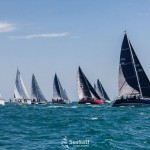
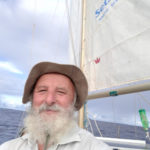



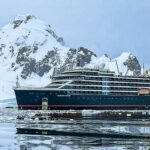


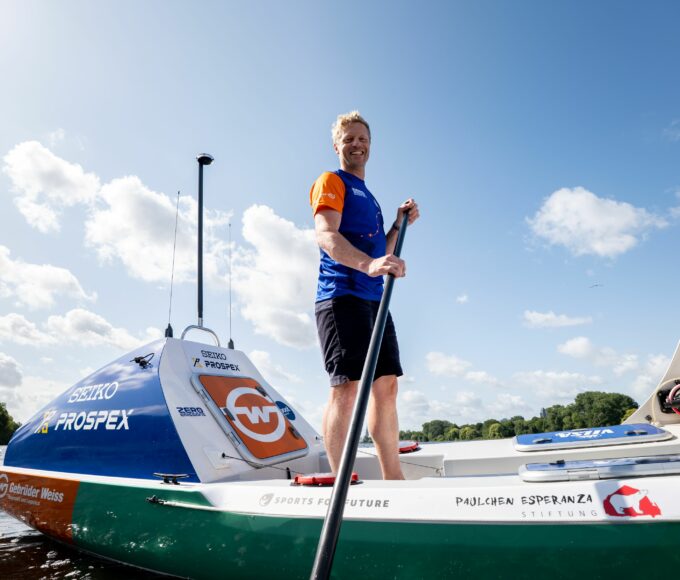
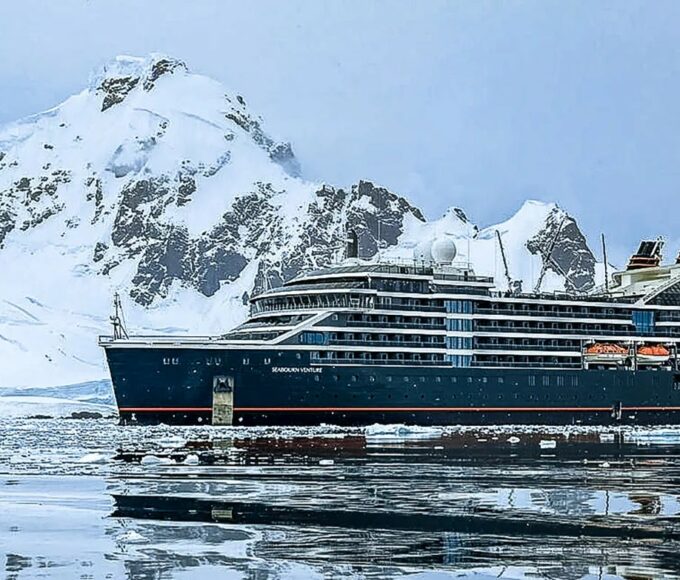


Comentați?